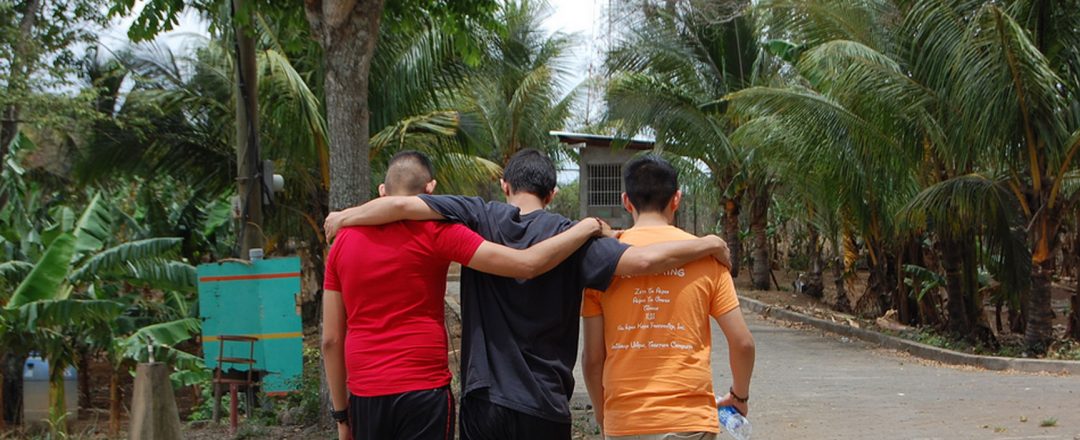

We are so excited that you are considering a visit to our home in Nicaragua. Every volunteer trip is unique, and experiences will vary greatly. The purpose of this page is to provide you with some guidance about what to expect during your time in Nicaragua and to help you be as prepared as possible as you plan your travel to this beautiful country.
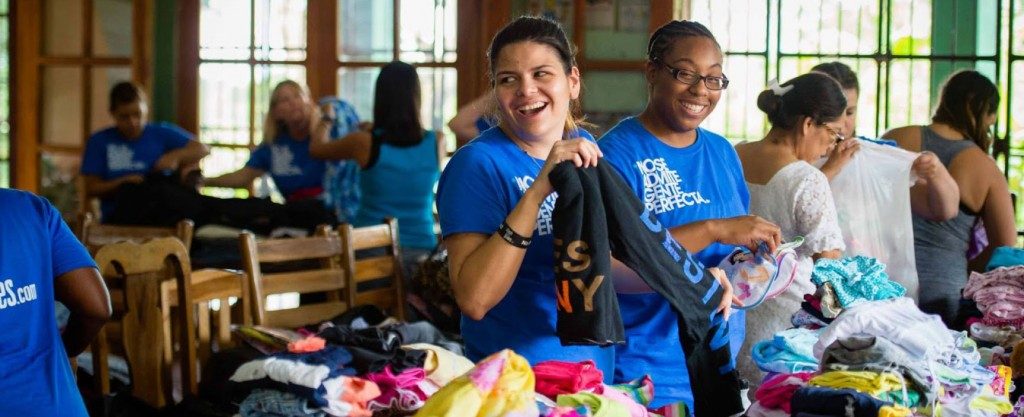
You will need a valid passport with a minimum of 6 months left (until expiration) from the date of arrival into Nicaragua. It is also important to have at least two empty pages left before departure. If you do not currently have an international passport, it is imperative that you apply for one as a first step. For more information, please visit: travel.state.gov/passport. It typically takes 4-6 weeks (processing time) and the current cost is $110.00
You will not need to obtain a visa prior to entering Nicaragua (for stays of 90 days or less). For stays longer than 90 days, please visit the Nicaraguan Immigration website at: migracion.gob.ni for more information. When entering Nicaragua, you will purchase a visa for $10.00. Please have a newer, crisp $10.00 bill ready when you arrive at the Managua airport.
If you are not a U.S. Citizen, please know that you will need your passport as well as your Permanent Resident Card to travel to/from Nicaragua from the United States.
Please have three-colored copies of your passport (one copy that you will leave at home, one that you will carry on you, and one for your team leader).
It is suggested that you be current with certain shots:
– Hepatitis A and B- Measles-Mumps-Rubella (MMR)
– Typhoid and Tetanus-Diphtheria-Pertussis(Tdap) vaccine at minimum
– Although Malaria is not a high risk on the western side of the country, some people also prefer to take the medication as a precaution. Many people have adverse reactions to malaria medication so you need to assess the risks carefully.
You can assess more information regarding health precautions when traveling to Nicaragua at the Center for Disease Control website: wwwnc.cdc.gov/travel/destinations/traveler/none/nicaragua.You can obtain vaccines through your doctor, health clinics at airports, the travel clinic at your local hospital or through your local health department. Vaccinations, depending on state of residence, insurance carrier, and the needed vaccines, can range from $50-$150.
Do not purchase your airline tickets without first having your trip approved by Arms of Love International. Between team schedules and the children’s schedules, it is important that we book your stay at the appropriate time in the year.
We highly recommend having travel insurance. Typical coverage includes trip cancellation and delay, lost baggage, evacuation in case of medical emergency or natural disaster, medical emergency, travel assistance services, etc. Although there are many insurances, the Top Consumer Review shares that Travel Guard, Squaremouth, In-sure My Trip, and Allianz are the best rated in the industry. Most travel insurance to Nicaragua ranges between $45-$60.
Please register your trip with the U.S. Department of State- Smart Traveler Enrollment Program (STEP). By doing this, you will receive the most current information about Nicaragua, including current travel advisories. This also allows the U.S. Embassy to know where you are in case of an emergency: travel.state.gov/content/passports/english/go/step/html
The U.S. Department of State also provides information regarding safety tips, current crime rates, current disease information, cli-mate patterns, and relations. It is free to register for your trip.
Nicaragua has a tropical climate with warm temperatures and high humidity year round. The average high temperature throughout the year is between 87 and 91 degrees Farenhiet, and the average low temperature is between 69 and 73 degrees. November to April is the dry season in western Nicaragua, and when rainfall is very sparse it can become very dusty in Jinotepe. The rainy season is from May to October and you can expect rain any day. Please note that it is much hotter and more humid in Managua than in Jinotepe.
In order to be the most effective as a team, we recommend that you have a minimum of 6 pre-trip planned meetings. These meetings are focused on team building/unity, information sharing, developing a team schedule based in skill sets and passions, and spiritual preparation. Your team leader has received recommendations for these meetings.
Click here to view our Packing List and Tips!
When checking baggage in the U.S., you will receive baggage claim tickets. DO NOT lose them! You will need them in order to leave the Nicaraguan airport with your luggage.
Most airlines allow you to check one piece of luggage free when traveling internationally. When checking a second bag, the charge can range from $35-$45 depending on the carrier. Please account for this in the amount of items you bring to Nicaragua, as well as how the additional charges are included in your team’s budget.
The airline will distribute immigration paperwork while you are flying for you to complete before landing. Paperwork includes a customs form, a health form, and an immigration form.The paperwork will ask you for your address in Nicaragua. It is:
Barrio Guadalupe
Cruz Verde, 800 metros
este. mano izquierda
Jinotepe Dpt: Carazo
Nicaragua
Phone Number: 505-89666-4258 (Director Ewner Zuniga Jiminez)
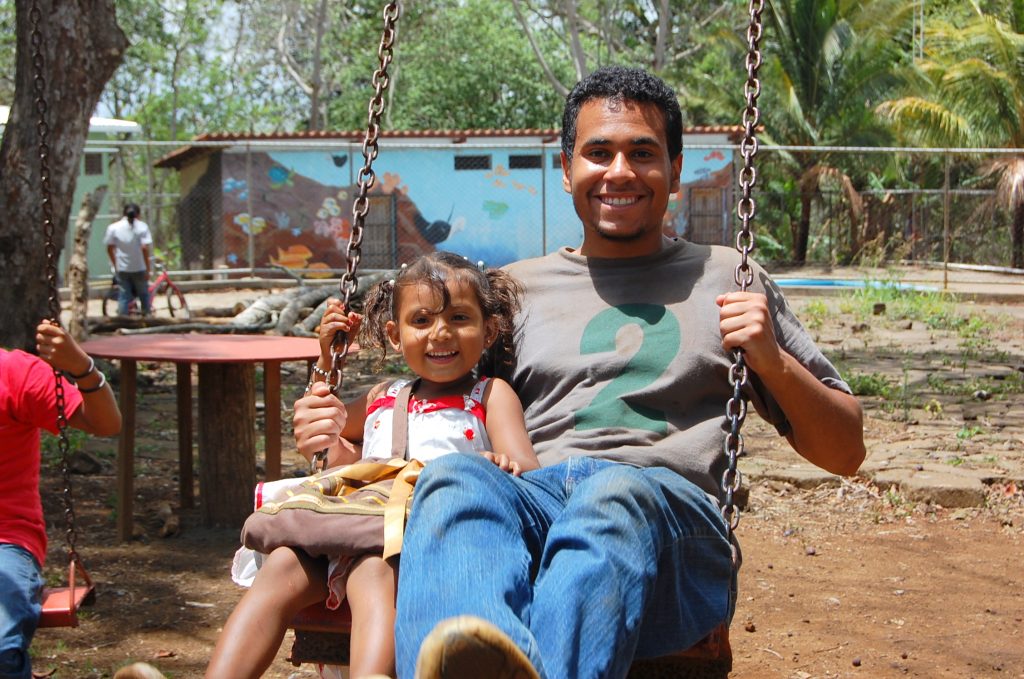
After arrival, you will follow the signs to immigration where you will show the immigration officer your passport and completed immigration document. The Managua airport is small. When you come down the hallway, you will walk down a flight of stairs and be in the customs area. There is a bathroom to your left, and is the only bathroom for awhile so take full advantage.
Proceed to the customs office. You will be asked to pay a $10.00 fee (USD) for a tourist card in order to enter the country. You will receive a small card that is tamped. That is your visitor’s visa. Keep this form with your passport. Do not lose it, as you will need it to have it when leaving the country.
After you have cleared immigration, proceed to the baggage claim. There are only two carousels. Please note: There will be several men prepared to help you with your luggage (from the carousel, outside, etc..). It is up to you to decide if you would like their additional help/services. However, be prepared to have to tip each attendant that helps your team. If you do not need/want their assistance, you may say “Estoy bien, gracias.”
When everyone in your group has their bags, follow the signs to the exit doors. An officer will ask to see your baggage claim checks and compare them to your luggage tags.
You will then place all of your baggage/back-packs/purses on a security carousel. Please keep your final customs form out, as you will be giving this to the attendant.
After you walk through security, please step through the sliding glass door (the inside one, not the outside). Teams will be met by Arms of Love representative. Look for someone just outside the door holding a sign with your church or group name, or the name of your group leader. The representative will take you to your bus or van where you will load your luggage and depart for Jinotepe, which is about a 1.5 hour drive from the airport.
While Nicaragua is a relatively safe country to travel in, it is always advisable to stay in groups while traveling in developing countries. The main concern is theft, so be sure to keep your money in a place not easily accessible when traveling around town (i.e. in a zipped purse or money belt). We recommend that you do not carry all of your money on you/or in the same place. In addition, once you have arrived at Brazos de Amor, please keep your passport in your locked team room. This has less to do with theft, and more to do with members losing their passport when out playing in the community/visiting neighborhoods. Be advised that Nicaragua is a country prone to natural disasters such as hurricanes and earthquakes. To ensure your safety, please respond to any instructions you receive from your team leader or Arms of Love staff members.
The monetary unit in Nicaragua is the Nicaraguan cordoba (NIO). At the air-port, you can exchange US dollars for cordobas or, if you have an ATM card, you can use any ATM at the airport or around town. We recommend you bring cash, as ATMs are not always open or working. Your team leader can also exchange money for your group. In addition to the monies included in team funds, most individuals choose to bring an additional $100-$150 to purchase souvenirs, snacks, etc.
To see the current exchange rate, please visit: coinmill.com/NIO_USD.html Please note: the exchange rate can differ based on which bank or money handler you work with.
It is important that you bring clean bills to Nicaragua. If your money has tears, writing, marks, or is really old, you may not be able to use/exchange it. Banks can provide you with clean bills by contacting them ahead of time.
Your Arms of Love room and board is $40 a day per person. As part of a team, this is paid in advance and included in your team costs. Meals eaten off-site are on your own. The per day costs are charged for each calendar day you are with us (even if you arrive late or leave early) and will not be reduced if you decide to eat off-site. The meals are typically a modified local dish prepared with North Americans in mind. Al-though the meals may be different than you are used to, please keep in mind that the cooks’ work especially hard to make you feel welcomed, and prepared special meals just for you.
We will have bottled water for you. The water at the faucet is fine for brushing teeth and showers but can cause severe digestive problems. because of this, we recommend brushing your teeth with the bottled water.There are separate rooms for males and females. In Jinotepe each room has two showers and two toilets. There is no hot water or air conditioning. Mosquitoes are abundant and the homes in Nicaragua are very open so many people bring mosquito nets to put over their beds. (Any store with camping equipment will have them.) There are currently no separate rooms for married couples to stay together.
Because Brazos de Amor works regularly with teams, we have a few trusted transportation contractors that we utilize. Arranging transportation is easy, and relieves the burden off of teams in feeling they need to reserve reliable transportation, be prepared to drive in an area they are unfamiliar with, etc. When communicating with the Arms of Love staff, please notify them if you would like to help with scheduling transportation.
Ted Rogers, In-Country Team Coordinator and Projects Manager, will have a cell phone for emergencies and team coordination needs. The children’s home in Jinotepe is about 2 kilometers from town, in a rural area. Cell phones from the US may work, depending on the carrier and type of handset, but rates are usually very high — $2-$3 per minute or more. You may be able to purchase a SIM card locally for your handset and take advantage of lower rates, but again this varies by carrier and equipment. There is limited WiFi available at Brazos de Amor, but we strongly encourage teams to focus on being present during their stay, and limiting the amount of time spent communicating back home.
Spanish is the official language of Nicaragua. In the airport, hotels, and some shops, many people speak some English. Some of the children speak a little English and some will even enjoy practicing their language skills with you. If no one on your team speaks fluent Spanish, you will want to hire an interpreter. We recommend that teams work with a translator even with a Spanish speaker, as it allow every team member to fully engage. In addition, although persons may speak Spanish, a translator helps with cultural norms and information unique to Nicaragua.
Arrangements can be made for local interpreter at a cost of approximately $35 per day. For every 10 persons, we recommend 1 translator. Depending on where the translator lives, it may be best for them to stay with your team for the duration of your trip. It will cost $10 per day for the translator’s room and board.
Jinotepe has a Red Cross Hospital and a public hospital, along with a number of clinics. Managua has a Baptist Hospital and a Military Hospital, along with a variety of other public hospitals and clinics. There are usually a couple options depending on the type of illness or injury sustained. The Brazos de Amor staff will help get volunteers appropriate help. If you have a member of your team sick, please let a staff member know.
Location: Kilometer 5 1/2 Carretera Sur, Managua
Nicaragua Embassy Telephone: 011-505-2252-7100
Consular Section Phone: 011-505-2252-7888
Consular Email: consularmanagua@state.gov
American CitizenServices: acs.managua@state.gov
Website: Embassy Link
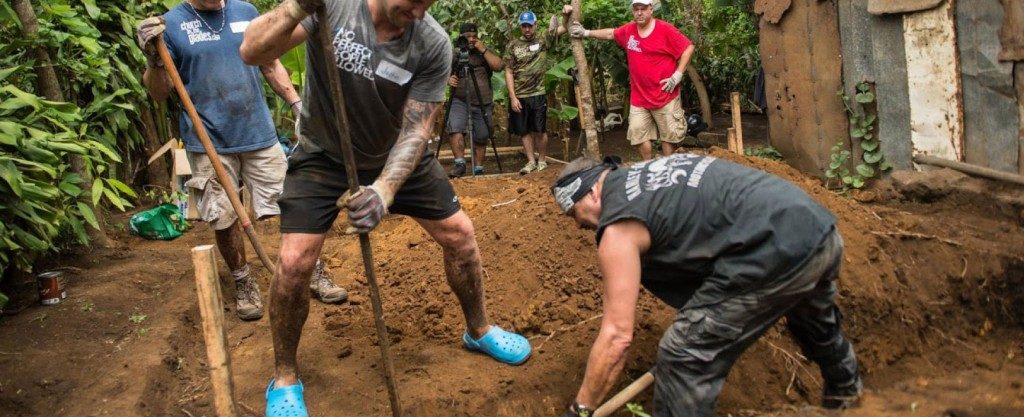
A word about time in Jinotepe: as is true in much of Latin America, Nicaraguans (“Nicas” for short) have a view of time that is different from a typical North American. Nicas are more relaxed about exactly when things are done. You will find few clocks in the compound, and a delightfully slower pace prevails. Nicas are not time-oriented, they are relationship-oriented. We encourage you to slow down, adjust your expectations about promptness and enjoy time with the children and workers. It can be a very healthy approach to time!
Once you arrive at the Jinotepe team house, you will be assigned rooms and given a short explanation of the following day’s plan.
Your first full day at Arms of Love is usually a low-key day. You will wake around 7:30 (or earlier to do devotions, etc.), with breakfast served at 8:00. At about 9:30, the team will meet with our missionary support and Team Coordinator, Ted Rodgers, who will go over some logistics and guidelines for your time at Brazos de Amor.
Based on your team leader’s communication, a schedule will have been created for your time at Brazos de Amor. This schedule intertwines Brazos de Amor children and staff’s daily commitments as well as team’s agenda. The children have a set schedule, which needs to be respected. Please be prepared for flexibility and change! We have a saying in Nicaragua … Nicaragua wins again! This means that life happens, and because of this, change is inevitable … so embrace living in the moment.
Sunday’s schedule includes attending/serving at a local church and preparing for the week’s ministry. On Monday through Saturday, your team will engage in work projects, spending time with the children, and other activities, all depending on the skills of team members, needs of Brazos de Amor/Community Care Program (for repairs, construction, maintenance and so on), and available funding. Supplies and funding for the week’s ministry are provided by the team.
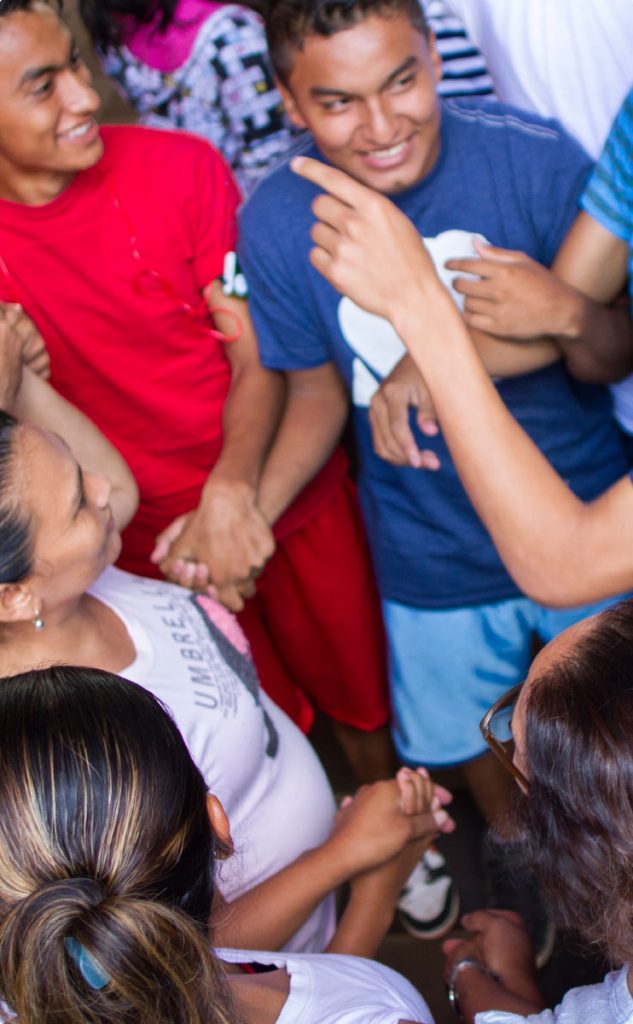

In the Residential Program, we currently have 35 children and youth between the ages of 8-17 years old living at Brazos de Amor. There are three homes (Casa Uno, Casa Dos, and Casa Tres … also known as Heather’s House). Each home includes house parent couples, who promote a family environment though meals, chores, activities, and healthy expressions of love and care; and support staff who create and implement programs that reinforce the importance of holistic health through quality health and hygiene, academic excellence, spiritual development, mental health, etc.
In 2013, our mission was expanded to include helping children in our local communities who are vulnerable to illness, lack of education, and neglect due to extreme poverty. The Community Care Program currently consists of 30 children and youth from the surrounding neighborhood who were identified by the local school as urgently needing assistance. Today, the children come to Brazos de Amor for nutritious meals 3 times per week, and supplemental education is provided for the kids and parents, including tutoring, music classes, English classes, computation, hygiene training, mental health teachings, and spiritual discipleship.
The Independent Living Program currently has 8 young adults pursuing higher education and transitioning into adulthood. Arms of Love has established a residential home for abandoned and abused children in Jinotepe, Nicaragua to provide them with a home, a family, and a future. One of he essential investments for our children is their education. Unlike traditional foster care models, Arms of Love’s goal goes further, and hopes to inspire our children to discover their passions, and provide support to attend college or trade school. Through this model, we seek to transform the lives of our children and have a long-term solution to poverty in their communities.
We currently have several projects needs identified. Please converse with Jess Burge, the Director of Partnerships & Programs, regarding your team, and the possibilities available at Brazos de Amor. Past work projects have included: painting walls, tiling, welding, building laundry facilities, constructing homes for the Community Care Program families, designing the basketball court, maintaining the playground, painting murals, and much more! Work projects can range from $400-$4000.
The kids love crafts and to play games. They also enjoy playing soccer, basketball, and baseball. You might want to put on a sports tournament with the kids, create a spiritual training for staff, or even prepare a meal! We welcome ideas during the team planning and conversations with Arms of Love staff. The cost for supplies is in addition to your room and board.
It is important to note we have a broad range of ages at Brazos de Amor, with children ranging in age from 6 years old, to our college-aged young adults. The largest percentage of youth living at Brazos de Amor is between 12-16. Because of this we ask that teams consider activities catered to the various age groups. I.e at age 6, youth enjoy coloring activities, games that make them act goofy, and bible stories where they get to be an active part of the lesson telling. At age 11, youth still like games that are active ( like relays), but are going to be less excited to be asked to be a wave when telling the story of Jesus walking on water. At age 15, youth want to be a part of planning and implementing activities, but only engage when creating t-shirts, playing sports, etc.
Many teams enjoy having a fiesta with the kids. The additional cost (sponsoring the event) amounts to purchasing some special food for dinner for the kids (pizza or hotdogs) and maybe a piñata and candy. Estimated cost: $400.
It is also possible to take the kids to the beach, to a waterpark, on a sightseeing trip, or even to volunteer in the community. Estimated cost per activity: $300-$550.
Costs for such events can be provided and estimated by Jess Burge.
The children attend service at a local church in Jinotepe. If you would like to attend church with the youth, please just let us know in advance. Many Vineyard churches like to attend service at the La Vina church plant in Managua. You may bring the older kids along if you’d like. La Vina welcomes guest speakers and musicians. You may also consider doing an outreach with that church. It is important to estimate the cost of transportation and food to Managua in your team budget. Approximately $150-$250.
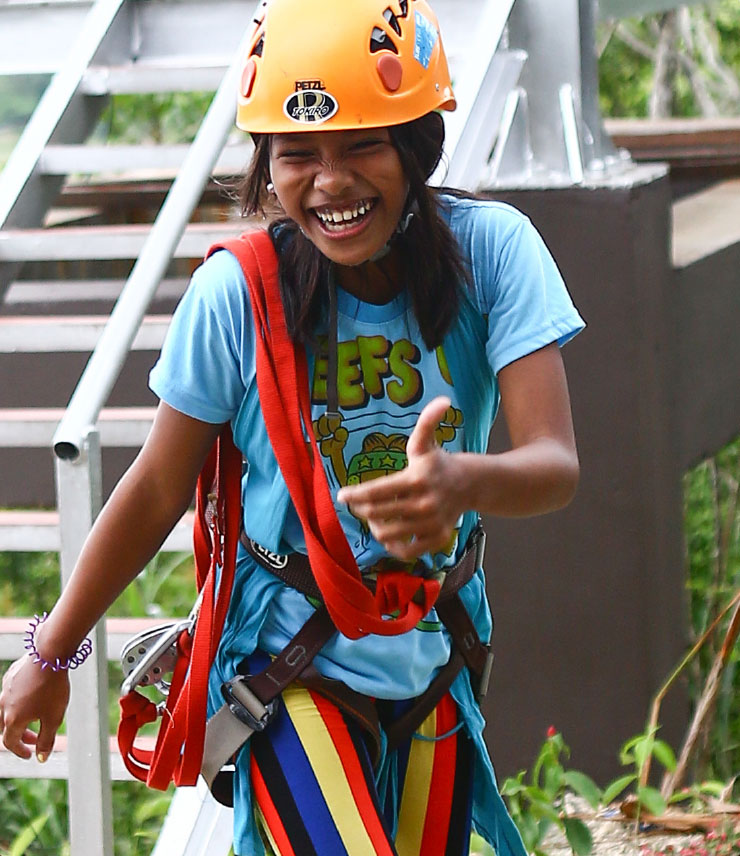
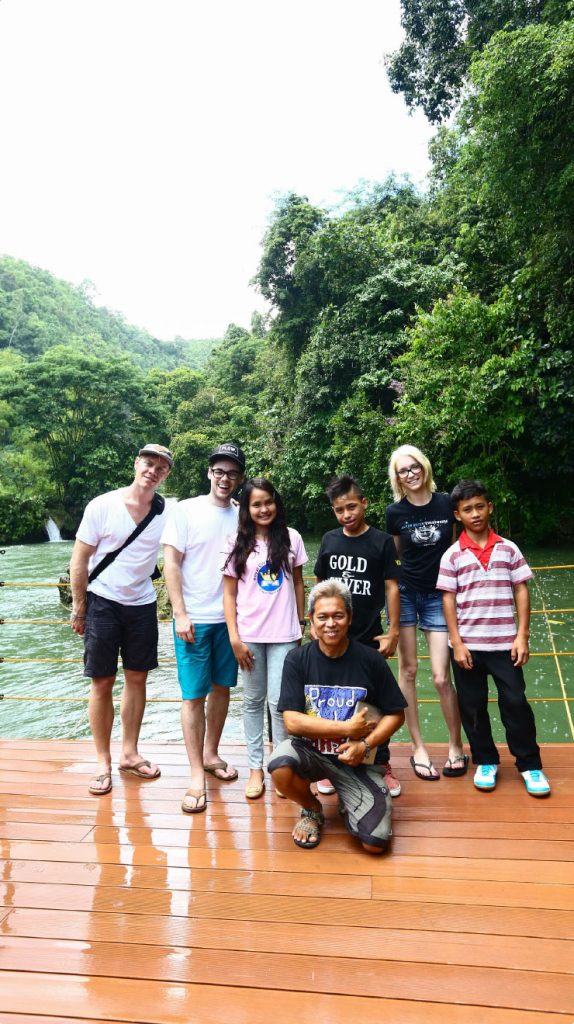
Many teams will incorporate some sightseeing into their trip. Some sites that teams have visited include Masaya Volcano National Park (about 30 minutes from Managua), Lake Nicaragua, and the Managua zip-line over the lagoon of an inactive volcano. Shopping for local crafts at Masaya or Managua might also be included in the day’s events. One of the favorite places to vidit is Laguna de Apoyo — Google it, you have an opportunity to enjoy a small piece of paradise only 40 minutes from Arms of Love. Most team days cost $200-$350.
When working on your schedule with the Arms of Love staff, please notify us if you would like to schedule a team day.
Example of a Team Participant Cost (for a team of 10):
$790 (flight from Denver, CO to Managua)$45 (International Traveler’s Insurance)$10 (Visa)$400 ($40 per day 10 days/nights)$60 (Transportation $600 for team of 10)$200 (Program Activities)$130 (Work Project)$70 (Team Day)$45 (Translator -$45 per day/team of 10)Estimated cost of trip per person in this example would be: $1750
Because most flights back to the U.S. depart very early in the morning, teams may want to spend their last night in Managua. Depending on the time of your flight, please let Jess know if this is an option you would like to explore. If not, we can contact the bus to take you back early in the morning.
The airport in Managua is small and modern.. When you enter the airport you should be able to easily locate your airline’s ticket counter.
As a general rule, you should plan to arrive at the airport at least 2.5 hours prior to your flight so you can check in, go through passport control, and security, and board your flight without stress. There are several shops and restaurants in the airport for last-minute shopping or to get a meal before takeoff.
When arriving in the airport, you will receive a customs form you need to fill out prior to checking in/checking your bags. Once you walk down the hall, you will approach security. You will turn in the form, and show your passport, plane ticket, and your visa to the agent at the security counter. You will then proceed through security and walk upstairs to wait for your flight.
We want to welcome you home from your trip! In addition to loving on our kids, your healthy transition is also very important to us. Jess encourages a phone conversation with you to process and provide feedback. There is also transition activities outlined here. It is important that you take time to process your experiences and engage in community stateside. Many times individuals have a difficult time “putting into words” the emotions they are experiencing. We encourage you to journal and stay connected to God’s promises as you begin to process through your experience abroad.
We suggest downloading our Nicaragua Cheat Sheet to learn more about Nicaraguan culture and its history.
We believe prayer is powerful! Get involved by praying for children who are orphaned, abused or living in extreem poverty around the world. Learn more about being a partner in prayer!